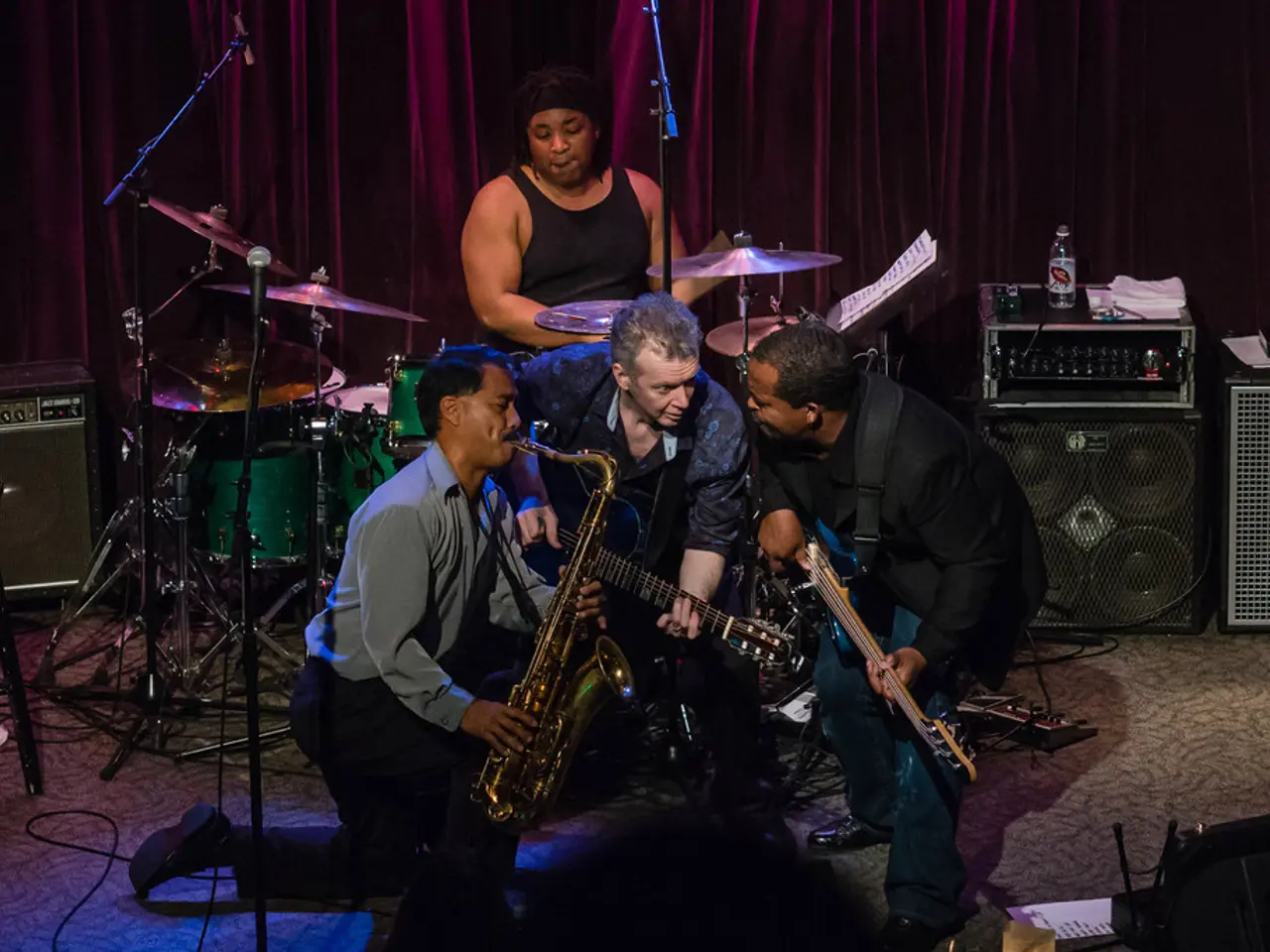Indications Suggesting a Suitability for Live Sound Engineering Profession
In the world of music, the role of a live sound engineer is pivotal, ensuring that performances are heard with crystal-clear quality and impact. To embark on this exciting career path, aspiring engineers typically follow several key steps and develop essential skills for the job.
### Steps to Becoming a Live Sound Engineer
1. **Obtain Relevant Education and Training** Aspiring live sound engineers often pursue degrees, diplomas, or certifications in sound engineering, sound production, or music technology. These programs typically span from six months to three years and provide foundational knowledge in audio theory and practice. Formal education often involves entrance tests or interviews, and practical learning intensifies on the job or through personal projects.
2. **Gain Practical Experience** Begin by assisting in live sound setups and gradually take on roles such as stage patch technician or venue audio tech to understand equipment setup and live mixing environments. Building experience often involves working at festivals, concerts, theater productions, houses of worship, or corporate events, helping to develop hands-on skills.
3. **Build a Professional Network and Reputation** Connections with artists, producers, venue managers, and other sound technicians are crucial. Freelance live sound engineers benefit greatly from networking to secure gigs and grow their careers. Establishing an online presence showcasing your work can also attract more opportunities.
4. **Develop a Specialization or Choose a Career Path** Roles in live sound engineering include Front-of-House Engineer, Monitor Engineer, live broadcast audio mixer, festival stage crew, or corporate AV technician.
### Essential Skills for Live Sound Engineering
- **Technical Expertise**: A strong knowledge of audio equipment, signal flow, acoustics, and sound physics is essential. - **Troubleshooting Ability**: Quickly identifying and resolving equipment issues or sound problems during live events is vital. - **Fast-Paced Sound Adjustment Skills**: Adapting volume, pitch, and equalization swiftly and precisely in live scenarios is crucial. - **Communication and Collaboration**: Working effectively with artists, producers, stage managers, and technical crews to meet performance needs is essential. - **Attention to Detail**: Detecting subtle audio imperfections and maintaining sound quality under pressure is key. - **Adaptability and Composure Under Pressure**: Being calm and effective in new, high-stress environments with tight deadlines is necessary. - **Curiosity and Passion for Audio**: A deep interest in sound technology and a passion for helping artists achieve the best live audio is fundamental.
### The School of Sound Engineering Excellence
One institution that stands out in this field is a specialist music production institute, the only one to receive a TEF Gold rating. This school offers degrees or short courses in London, LA, Ibiza, and Online. Their London campus features SSL mixing desks, and their instructors are industry experts. The Live Sound Engineering course is guided by expert lecturers and includes hands-on training, aiming to prepare students to handle high-pressure, real-world environments. The course includes two live gigs for practical experience. The school offers a BA (Hons) Music Production & Sound Engineering Degree in London and a Music Production & Audio Engineering Bachelor's Degree in LA. The Live Sound Engineering short course lasts for three months and covers live mixing, stage setups, and running a show.
-To progress in the live sound engineering career while maintaining a vibrant lifestyle, connecting with artists, industry professionals, and attending entertainment events can provide valuable networking opportunities and insights.- Incorporating the latest trends in music technology and sound equipment into their skillset can help live sound engineers stay competitive and expand their career opportunities, enriching their entertainment experience.








